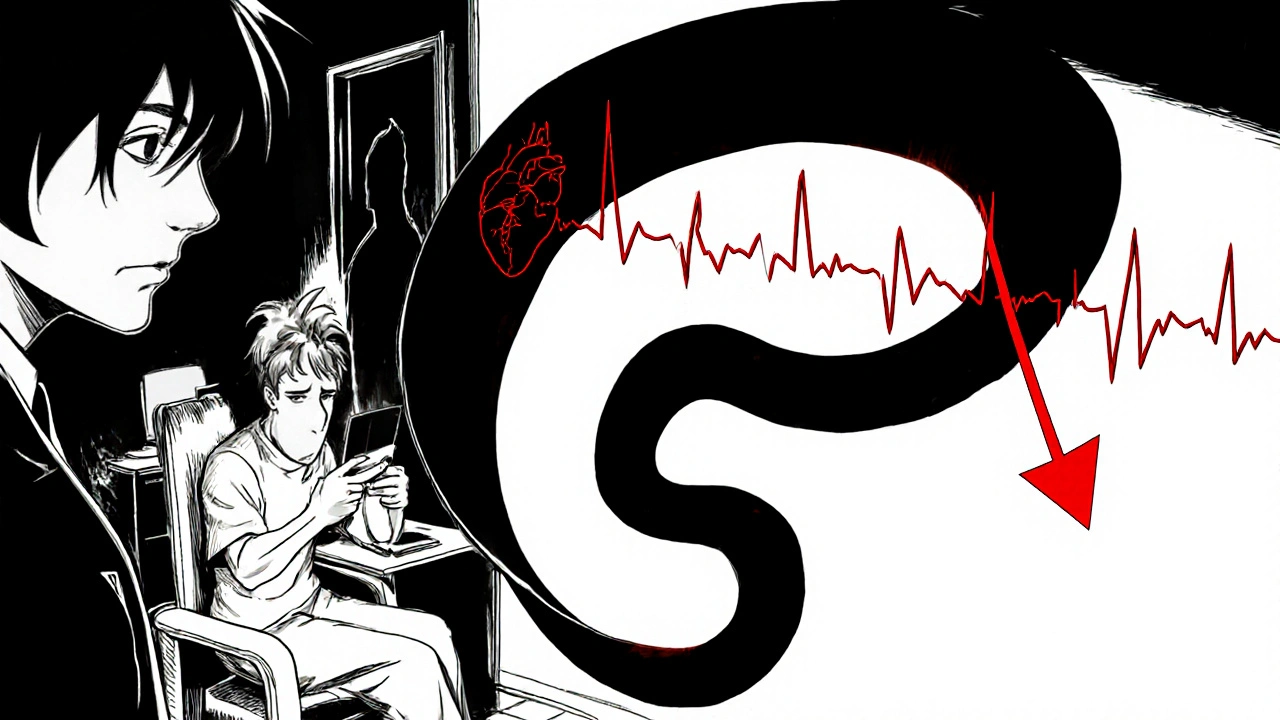QT Prolongation: Risks, Medications, and What You Need to Know
When your heart’s electrical system gets out of sync, it can lead to something called QT prolongation, a delay in the heart’s ventricular repolarization that increases the risk of dangerous irregular heartbeats. Also known as long QT syndrome, it’s not always genetic—often, it’s triggered by everyday medications. This isn’t just a lab result. Left unchecked, QT prolongation can lead to torsades de pointes, a life-threatening type of irregular heartbeat that can cause fainting, seizures, or sudden cardiac arrest. And while it sounds rare, it shows up more often than you think—especially when certain drugs are mixed or taken in high doses.
Many of the medications you might be taking—like citalopram, an antidepressant commonly prescribed for depression and anxiety, or clonidine, a blood pressure drug used for ADHD and withdrawal symptoms—have been linked to QT prolongation. It’s not about avoiding these drugs entirely. It’s about knowing your risk. If you’re on more than one medication, have a history of heart issues, or are older, your chances go up. Even something as simple as low potassium or dehydration can make the problem worse. Doctors don’t always check for this unless you have symptoms like dizziness, palpitations, or unexplained fainting. But you can ask.
What you’ll find in the posts below isn’t just a list of drugs. It’s a practical look at how common medications—antidepressants, sleep aids, antibiotics, and more—can quietly affect your heart rhythm. You’ll see real comparisons: why one person’s Celexa might be fine while another’s triggers trouble, how Clonidine stacks up against alternatives, and which over-the-counter sleep pills carry hidden cardiac risks. No fluff. No scare tactics. Just clear, grounded info to help you talk to your doctor with confidence—and avoid surprises down the road.
Antipsychotics + QT‑Prolonging Drugs: How Combined Use Raises Arrhythmia Risk
Learn how antipsychotics combined with other QT‑prolonging drugs dramatically increase arrhythmia risk, and discover practical monitoring and drug‑selection strategies.
read more